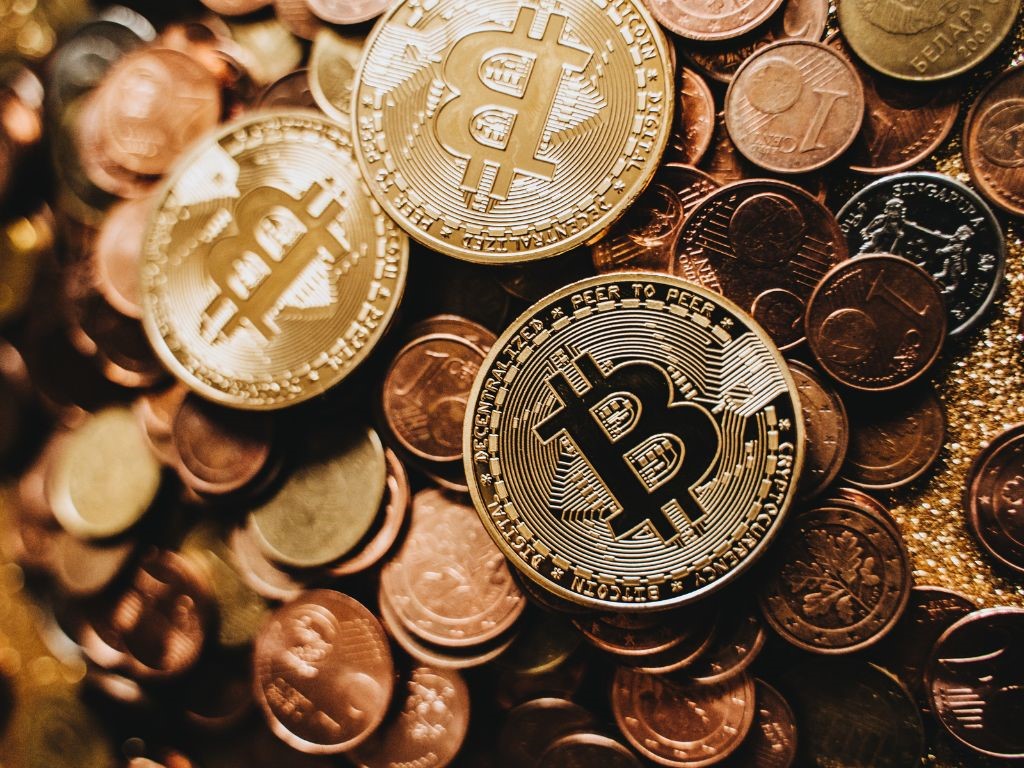Cryptocurrency can seem confusing but getting started doesn’t have to be. This guide to crypto for beginners explains exactly what you need to know, in plain language, with no tech jargon or empty hype.
Inside, you’ll learn what cryptocurrency is, how it works, and why so many people are interested. Step by step, you’ll see how to choose your first coin, set up a wallet, pick a secure exchange, and avoid the common mistakes that cost new users money.
Each section gives you practical actions and safety tips, so you can enter crypto confidently and protect your funds from day one.
Whether you’re here to invest, learn, or simply understand the basics, you’ll find clear answers and a solid starting point. Let’s break down crypto, one simple step at a time.
📝 Key Takeaways: Crypto for Beginners
- Start with the basics. Focus on well-known cryptocurrencies like Bitcoin and Ethereum. These are established, widely supported, and easiest for beginners to research and understand.
- Use the right wallet for the right purpose. Hot wallets are convenient for everyday use, but cold wallets offer stronger security for long-term holdings.
- Choose reputable exchanges. Platforms like Coinbase, Kraken, and Binance are beginner-friendly and provide important security features such as two-factor authentication.
- Don’t follow hype. Never buy a coin just because it’s trending on social media. Take time to learn what each project does before investing.
- Only use money you can afford to lose. Crypto markets are volatile and unpredictable. Treat your early investments as tuition for your learning.
- Stay cautious and keep learning. Crypto changes fast. Regularly update your knowledge, watch out for scams, and never rush into decisions.
- Take control of your learning pace. Don’t feel pressured by headlines or friends move at a speed that’s right for you.
These key points form the foundation of every smart crypto beginner’s journey. With them, you can avoid common mistakes, protect your assets, and start exploring the crypto world with confidence.
🪜 Step-by-Step: How to Explore Crypto Safely as a Beginner
Starting in crypto doesn’t require luck or insider tips. What you need is a clear process. Here’s how beginners can get started, step by step:
1. Choose a Beginner-Friendly Cryptocurrency
Don’t get distracted by flashy new tokens. Stick with established coins that have proven stability and solid reputations, think Bitcoin (BTC), Ethereum (ETH), or Cardano (ADA). These are widely supported, well-documented, and give you room to learn without unnecessary risk.
2. Set Up a Secure Wallet
A crypto wallet is your digital safe. Hot wallets (like MetaMask or Trust Wallet) are connected to the internet and perfect for small, everyday transactions. Cold wallets (like Ledger or Trezor) are offline and best for storing larger amounts securely. For maximum safety, use a hot wallet for active funds and a cold wallet for savings.
For more on wallet security, check out our Cold Wallet Guide.
3. Pick a Trusted Crypto Exchange
Exchanges are where you’ll buy, sell, and sometimes store your crypto. For beginners, the best choices are platforms with a simple interface, clear fee structures, and strong security features. Coinbase, Kraken, and Binance are leading options, but always enable two-factor authentication and double-check the site address before logging in.
4. Make Your First Purchase
Once your wallet and exchange account are set up, you’re ready to buy. Transfer a small amount of money you can afford to lose, select your cryptocurrency, and follow the prompts. Even $10–$20 is enough to learn the process without putting your finances at risk.
5. Learn to Manage (Not Panic Over) Your Holdings
Markets can swing wildly, don’t let emotions drive your decisions. Hold your coins, diversify your portfolio over time, and use reliable sites like CoinMarketCap to track values and research trends. Don’t invest more than you can lose, and resist the urge to chase quick profits.
Learning crypto is about building good habits early. With these steps, you’ll be ahead of most newcomers, ready to explore further with your assets and confidence intact.
📚 Want to explore tools that help beginners track and plan better? Visit our Crypto Calculators page.

🌐 Best Cryptocurrencies for Beginners
Choosing your first cryptocurrency matters. Some coins are built on solid foundations and have stood the test of time. Others are high-risk, poorly understood, or outright scams. As a beginner, focus on established, reputable projects with real utility and strong security.
Here are the top choices for anyone starting out:
- Bitcoin (BTC): The original cryptocurrency. Bitcoin is the most widely recognized and has the largest community, making it easy to research and buy.
- Ethereum (ETH): More than just a currency, Ethereum powers decentralized applications and smart contracts. It’s trusted by developers and supported by every major wallet and exchange.
- Cardano (ADA): Built for scalability and sustainability, Cardano offers an energy-efficient blockchain and has a growing ecosystem of applications.
- Polygon (MATIC): Designed to make Ethereum transactions faster and cheaper. Polygon is beginner-friendly and increasingly popular for small, low-cost transfers.
- Solana (SOL): Known for its high speed and low fees, Solana is another leading platform, but it can be more volatile ideal for those willing to learn a bit more.
Tip: Start with just one or two of these coins. Learn how wallets, transactions, and exchanges work before exploring riskier or less established tokens. Sticking with widely supported cryptocurrencies reduces your risk of losing money or getting stuck with a coin you can’t sell.
These options offer strong security, liquidity, and educational resources for first-time users. Once you master the basics, you’ll be better equipped to explore the wider crypto world.
Cryptocurrency | Why It’s Beginner-Friendly |
Bitcoin (BTC) | Most established coin with wide adoption and support. |
Ethereum (ETH) | Powers smart contracts and decentralized apps (dApps). |
Cardano (ADA) | Energy-efficient and built for scalability. |
Polygon (MATIC) | Offers fast, low-cost transactions on Ethereum’s network. |
Solana (SOL) | Known for speed and low transaction fees. |

🏦 Best Crypto Exchanges for Beginners
The right exchange can make or break your first crypto experience. As a beginner, you want an exchange that’s easy to use, well-regulated, and focused on security. Complicated platforms or unknown sites can lead to confusion, lost funds, or worse.
Top picks for beginners:
- Coinbase: Widely considered the most beginner-friendly. Clean interface, simple onboarding, and strong educational resources make it easy to buy your first coin safely.
- Kraken: Prioritizes security and offers robust customer support. Kraken’s clear fee structure and strong reputation appeal to cautious newcomers.
- Binance: Ideal for those who want to explore a wide variety of coins and tokens. Binance offers low fees and advanced features, but also provides a simple “Buy Crypto” portal for beginners.
What to look for:
- Transparent fees and easy account setup
- Mandatory two-factor authentication (2FA)
- Clear deposit and withdrawal options
- Responsive customer support
- Solid reviews and regulatory compliance in your region
Pro tip: Never trust exchanges that ask you to disable security settings or rush your decisions. Always verify the site’s web address phishing scams are common.
Once you’re comfortable with your chosen exchange, start small and familiarize yourself with the buying, storing, and withdrawal process before moving larger amounts of money.
Exchange | Why It’s Good for Beginners |
Coinbase | Clean interface, simple onboarding, strong educational tools. |
Kraken | High security, great customer support, good for cautious newcomers. |
Binance | Offers a wide range of coins, ideal for beginners who want to explore altcoins over time. |

⚠️ Avoiding Common Mistakes in Crypto for Beginners
Even the smartest beginners make errors that cost real money in crypto. Most losses don’t come from technology, they come from rushing, skipping security, or falling for hype.
Here’s how to sidestep the biggest pitfalls:
❌ 1. Chasing Hype Instead of Facts
It’s tempting to jump on whatever’s trending. Influencers and viral headlines rarely point to the safest bets. Skip the FOMO. Research every project, and ask yourself: Does this coin actually solve a problem? Who stands behind it?
🔐 2. Ignoring Security Best Practices
Weak passwords, lost recovery phrases, and skipping two-factor authentication are top reasons new users lose funds. Always use unique, complex passwords. Enable all security settings. Write down your recovery phrase and keep it offline if you lose it, your crypto is gone for good.
💸 3. Investing More Than You Can Afford to Lose
Crypto markets move fast. Volatility is part of the game. Only use money you’re comfortable losing. Start small, get comfortable, and never bet the rent.
🧠 4. Not Keeping Up With Learning
The crypto landscape evolves quickly. New threats and new opportunities appear every week. Make ongoing education a habit, read trusted guides, follow reputable news, and question bold claims.
✅ 5. Falling for Scams
If it sounds too good to be true, it is. Never share your wallet’s private key, and don’t trust unsolicited investment offers. Double-check URLs before logging in anywhere. Take your time scammers rely on urgency and inexperience.
Remember: In crypto, caution and patience always outperform shortcuts and hype. By sidestepping these mistakes, you set yourself up for steady progress instead of sudden loss.
Use platforms like CoinMarketCap, CryptoCompare, or our Crypto Tools Hub to track the market and analyze safely.

Final Thoughts
Starting with crypto doesn’t require advanced technical skills or insider knowledge, just a willingness to learn and an understanding of the basics. Every successful investor, trader, or enthusiast once stood where you are now: uncertain, cautious, and full of questions.
The most important lesson? Your decisions shape your experience. Take your time. Focus on security. Avoid shortcuts and hype. Rely on proven resources and never risk more than you can afford to lose. By following the fundamentals and staying curious, you’ll avoid the mistakes that trap most beginners.
Crypto is evolving every day. With a strong foundation, you’ll be ready to adapt, learn, and make the most of what this technology has to offer. Let this guide be your starting point and remember, confidence in crypto comes from knowledge, not luck.
Next: Read our Blockchain Technology Guide here.

❓ Frequently Asked Questions
What’s the best cryptocurrency for beginners?
Bitcoin and Ethereum are the top choices. They’re widely accepted, easy to research, and supported by every major exchange and wallet. These coins give you the most straightforward entry into crypto, with plenty of learning resources.
Do I need a crypto wallet right away?
Most exchanges provide a built-in wallet for your first purchase. For maximum control and security, especially if you plan to hold larger amounts, set up a personal wallet (hardware or software) as soon as possible.
How much should I invest when starting out?
Start with a small amount, such as $10–$50, just to learn the process. Only use money you can afford to lose. The goal is to understand how crypto works before committing larger sums.
Are crypto exchanges safe for beginners?
Reputable exchanges like Coinbase, Kraken, and Binance are designed with security in mind. Use strong passwords, enable two-factor authentication, and beware of phishing links. Never share your login credentials or recovery phrases.
Can I earn money from crypto as a beginner?
It’s possible, but it’s risky. Price swings are common. Focus on learning and security first profits will come with experience and time, not from rushing in or chasing trends.
What if I make a mistake?
Mistakes are part of learning. If you lose a small amount, treat it as a lesson, not a failure. Always double-check addresses, settings, and security steps before moving funds. If in doubt, pause and look up a trusted guide.
Disclaimer: This blog post is for informational purposes only and should not be considered financial advice. I am not a licensed financial advisor, and you should always do your own research or consult a professional before making any financial decisions. Cryptocurrencies are volatile and involve significant risk of loss. Past performance is not indicative of future results.
Your Phone Could Be Paying You Daily
DONE-FOR-YOU ISH...
Plug into a ready-to-go site that earns around the clock no tech skills needed.


1 thought on “Crypto for Beginners: Start Smart & Avoid Expensive Mistakes”